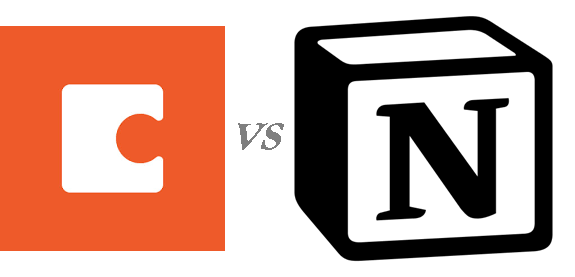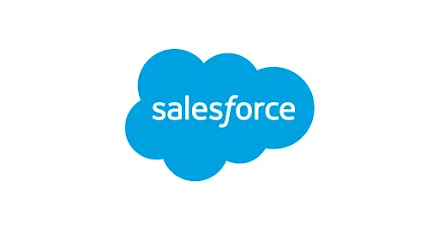Should DAOs be regulated?
What is a DAO?
DOAs have been popularized by cryptocurrencies and blockchain technology. They use a bottom-up style of management.
How do DAOs work?
DAOs operate using smart contracts - these are chunks of code that automatically execute whenever a set of criteria are met. These smart contracts establish the DAO’s rules.
DAO stakeholders then vote rights to influence how the organization operates by deciding on or creating new governance proposals.
For example, based on the outcome of a decision, certain codes may be implemented to increase the circulating supply, burn off a select amount of reserve tokens, or issue select rewards to existing tokenholders.
Voting power is spread across users based on the number of tokens they hold. For example, a user that has 100 tokens of the DAO will have twice the voting power over a user that owns 50 tokens.
This model prevents DAOs from being spammed with proposals. A proposal will only pass once the majority of stakeholders approve it. How that majority is determined is specified by the smart contracts and varies from one DOA to the other.
Popular examples of DAOs
- Uniswap is one of the biggest and most popular DAOs and operates as a cryptocurrency exchange built on the Ethereum blockchain. Anyone can become a member by holding the UNI token, which gives voting rights to the way the organization is run and administered.
- Decentraland - This is an online virtual world governed by a DAO, where administrative and governance decisions are taken by the stakeholders in a democratic fashion. Anyone who owns the platform's token, known as MANA, can take part in the process, and the platform is quickly becoming popular with global brands including Morgan Stanley, Coca-Cola, and Adidas as a way of reaching out to digital-native audiences.
- Dash is another example of how a DAO project can become the driving force behind the success of Defi. It is a decentralized digital payment option focused on offering faster transactions than other cryptocurrencies, namely Bitcoin. The utility token of the DAO is DASH. Just a little under 10.27 million DASH tokens are in circulation. A 623 million dollar market capitalization showcases an exponential growth in market value. Dash is steadily rising to the top of the DAO hierarchy.
- Curve DAO - This is the second most valuable decentralized autonomous organization worldwide. It is an exchange liquidity pool working on the Ethereum blockchain. Curve DAO offers to move liquidity-based funds and resources securely and quickly around the world.
Benefits of DAOs
- Participation. Individuals within an entity may feel more empowered and connected to the entity when they have a direct say and voting power on all matters. These individuals may not have strong voting power, but a DAO encourages token holders to cast votes, burn tokens, or use their tokens in ways they think is best for the entity.
- Community. The concept of a DAO encourages people from all over the world to seamlessly come together to build a single vision. With just an internet connection, tokenholders can interact with other owners wherever they may live.
- Publicity. Within a DAO, votes are cast via blockchain and made publicly viewable. This requires users to act in ways they feel are best, as their vote and their decisions will be made publicly viewable. This incentivizes actions that will benefit voters' reputations and discourage acts against the community.
- Decentralization. Decisions impacting the organization are made by a collection of individuals as opposed to a central authority that is often vastly outnumbered by their peers. Instead of relying on the actions of one individual (CEO) or a small collection of individuals (Board of Directors), a DAO can decentralize authority across a vastly larger range of users.
Disadvantages of DAOs
- It often takes longer for decisions to be made as there are more voting participants.
- There is often more burden to educate users as the collective voting population is diverse with varying ranges of education and knowledge.
- More time is needed to cast votes or gather users due to the decentralized nature of the entity.
- Severe exploits such as theft of treasury reserves are possible if the DAO's security is not properly established and maintained.
Should DAOs be regulated?
Well, the answer to this question primarily depends on where one stands on blockchain technology. Looking at the benefits and limitations of DAOs, there is no wrong or right answer to this question.
Lawmakers who are pro-regulating DOAs have consistently targeted the last disadvantage above to push their agenda. Indeed security is a major issue when it comes to digital assets and data.
From a legal standpoint though, regulating DOAs can prove to be a challenge. It is difficult for governments and central banks to regulate technologies that do not operate under the jurisdiction and are in large part not liable to its members.
Wyoming tried to address this issue by enacting a law that “is designed to allow DAOs to fit within an LLC structure,” which is intended to combat the concerns of a DAO’s members regarding personal liability under the current “general partnership” principles. The bill, however, goes against the very principle of DAOs – decentralization, and discretion.
If the bill is passed, DOAs may be forced to adapt because members could be held personally liable for the organization’s financial liabilities and responsibilities.
Lack of legal identity also brings up another concern with DAOs - their inability to enforce their legal rights in litigation. Smart contracts lack legal enforceability because of Daos' lack of legal identity. So for the sake of its members, legal identity is very important for some of the contracts and agreements to be legally enforced.
Tax also becomes a headache for governments and financial institutions when it comes to DOA. Switching to a DAO removed the ability of regulations to attach to the organization.
Alexis Goldstein, Director of Financial Policy at Open Markets Institute, believes that complying with the tax provision is not a technological limitation, but rather, is a design decision to stay outside of a regulatory framework. It is still unclear how DOAs and their members comply with statutory obligations.
Frequently asked questions about Decentralized Autonomous Organizations
1. How many decentralized autonomous organizations are there?
By September 2022, there are a total of 4,830 DAOs that collectively control an estimated $9.6 billion in assets, governing $27.8 billion in total locked value
2. Is Bitcoin a Decentralized Autonomous Organization?
Bitcoin represents the first real-world implementation of a DAO and offers a new paradigm for organization design. Imagine working for a global business organization whose routine tasks are powered by a software protocol instead of being governed by managers and employees
3. What Are The Most Popular DAO Tokens?
- Uniswap (UNI), at a price of $16.11 and $10,105.62 million market cap.
- Aave (AAVE), at a price of 215.2 and $2,900.85 million market cap.
- Curve DAO (CRV), at a price of $4.73 and $2,123.86 million market cap.
- Maker (MKR), at a price of $2,058 and $2,059.26 million market cap.
4. Are DAOs registered?
Only three U.S. states—Vermont, Wyoming, and Tennessee—currently recognize DAOs as legal entities. In each of these states, DAOs can choose to register as a type of LLC
5. How is a DAO governed?
A DAO is a blockchain-governed autonomous organization owned by its community members. It does not have a governing CEO or board of directors. The collective utilizes smart contracts to lay foundational rules and is designed to give members equal votes on changes or modifications.
Summary of DAOs and regulations
There are some considerations that should be discussed when debating the regulation of DAOs. This technology still offers a unique medium for users around the world to crowdfund assets and create an organization that aligns with their collective goals and beliefs.
DAOs were made to operate as self-regulated organizations that strive to connect the ideas of their members. They allow a decentralized system without bias from individual decision-makers. Limiting the decentralization and autonomous aspects of DAOs could have unexpected consequences that can diminish the benefits that have attracted many people to DAOs.
However, some form of regulation is necessary to protect DOA members against cybercrime – plus it makes litigation easy and predictable. Regulations should not be forceful. DOAs do not have to conform to existing laws to be entitled to a legal identity. New laws, specifically for DOAs can be created. This could, in theory, maintain the technology’s current form while ensuring oversight when necessary.



Comments
Post a Comment